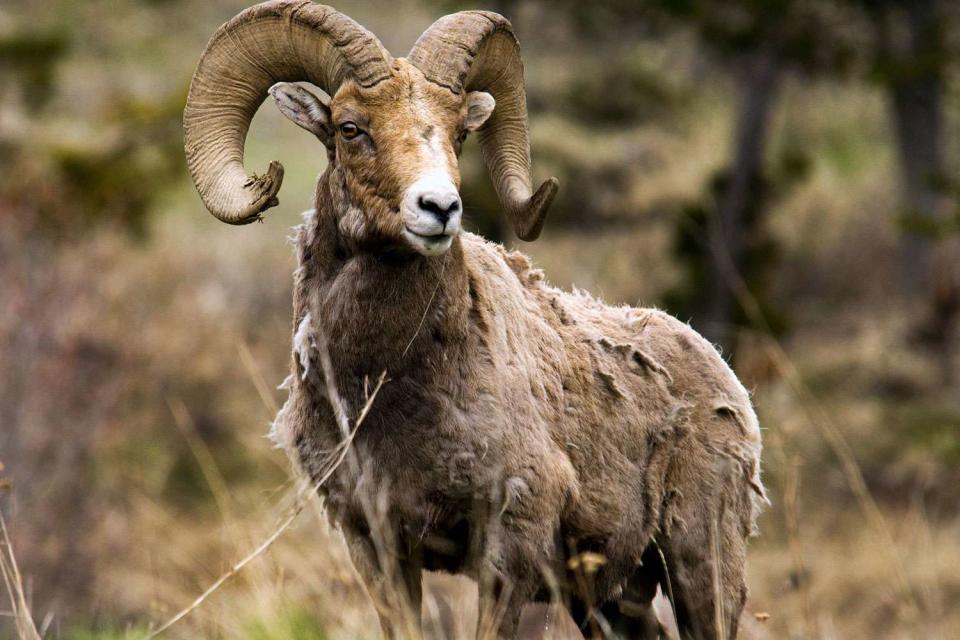Montana Man, 80, Pleads Guilty to Nearly 'Decade-Long' Effort to Breed 'Giant Sheep Hybrids'
“This was an audacious scheme to create massive hybrid sheep species to be sold and hunted as trophies," a Department of Justice official said

Getty
Stock photo of big horn sheepThe Department of Justice said Montana rancher Arthur Schubarth pleaded guilty in connection with two felony wildlife crimes
“Their goal was to create a larger and more valuable species of sheep to sell to captive hunting facilities,” the DOJ said about Schubarth and his co-conspirators
Schubarth is expected to be sentenced on July 11
A rancher from Montana pleaded guilty Tuesday in connection with an “almost decade-long” effort to create “giant sheep hybrids” for captive hunting facilities, authorities said.
Arthur “Jack” Schubarth, 80, of Vaughn, admitted to two felony wildlife crimes related to the Lacey Act, which bans interstate trade in wildlife “that has been taken, possessed, transported or sold in violation of federal or state law,” the Department of Justice (DOJ) announced in a press release.
Schubarth is identified by the DOJ as the owner and operator of Sun River Enterprises LLC, a ranch involved in the breeding, purchase and sale of “alternative livestock,” such as mountain sheep and mountain goats.
According to court documents, between 2013 and 2021, Schubarth conspired with five others to “create a larger hybrid species of sheep that would garner higher prices from shooting preserves.”
Related: Some Influencers Are Cloning Their Famous Pets to Maintain the 'Legacy' of Their Popular Animals
The documents alleged that Schubarth brought parts of Marco Polo sheep from Kyrgyzstan into the United States without declaring them upon importation.
According to Popular Science, the Marco Polo sheep is considered the largest sheep species in the world, weighing over 300 pounds and with horns measuring 5 feet. The DOJ also said that the sheep is protected by the Convention on International Trade in Endangered Species and the U.S. Endangered Species Act.
Never miss a story — sign up for PEOPLE's free daily newsletter to stay up-to-date on the best of what PEOPLE has to offer, from celebrity news to compelling human interest stories.
“Schubarth sent genetic material from the argali parts to a lab to create cloned embryos,” said the DOJ in its statement. “Schubarth then implanted the embryos in ewes on his ranch, resulting in a single, pure genetic male Marco Polo argali that he named 'Montana Mountain King' or MMK.”
Related: Late Dog that Saved Pregnant Owner from Deadly Accident Cloned to Meet the Children He Saved
According to court documents, Schubarth worked with his alleged co-conspirators to use MMK semen to impregnate other species of ewes to create hybrids.
“Their goal was to create a larger and more valuable species of sheep to sell to captive hunting facilities, primarily in Texas,” the DOJ said.
The department said that Schubarth “forged veterinary inspection certificates, falsely claiming that the sheep were legally permitted species,” so that he could transport the illegal sheep into and out of Montana.
“This was an audacious scheme to create massive hybrid sheep species to be sold and hunted as trophies," Assistant Attorney General Todd Kim of the Justice Department’s Environment and Natural Resources Division (ENRD) said in a statement. "In pursuit of this scheme, Schubarth violated international law and the Lacey Act, both of which protect the viability and health of native populations of animals.”
Related: Fiona the 'Loneliest Sheep' Rescued from the Bottom of Scottish Cliff After 2 Years of Solitude
The court documents also allege that Schubarth illegally acquired genetic material from Rocky Mountain bighorn sheep, a violation of Montana law that bans the sale of game animal parts in the state.
Katie Cheesbrough, executive director of the Wyoming Wild Sheep Foundation, told Cowboy State Daily that the case raises serious implications, particularly with exotic species mixing with the genetics of native wildlife.
“Although the physical outcome of hybridizing an Argali and Rocky Mountain bighorn sheep creates a sense of curiosity, it's not a good idea,” she said.
Prosecutors said that with each felony count, Schubarth faces a maximum of five years in prison, a fine of up to $250,000, and three years of supervised release. He is expected to be sentenced on July 11.
PEOPLE has reached out to Schubarth’s attorney on Friday for comment.
For more People news, make sure to sign up for our newsletter!
Read the original article on People.

